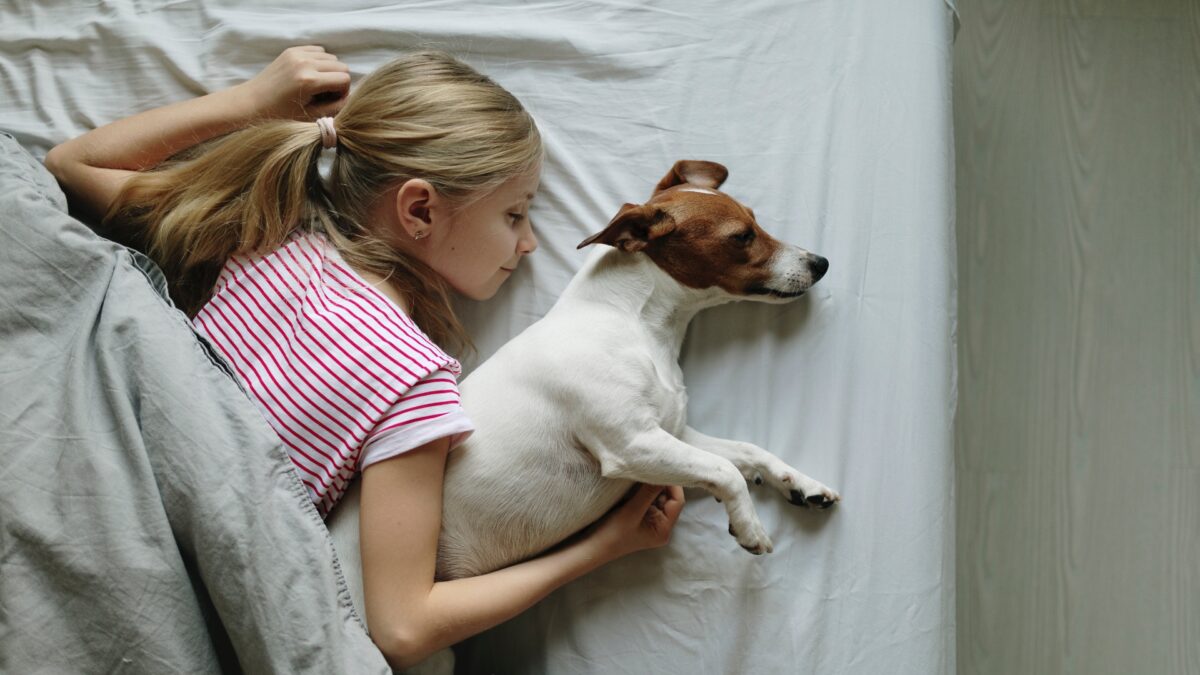Dog Behaviors 101: Why Doesn’t My Dog Want to Sleep with Me?
Posted on October 18, 2023 by Misty Fleming
Have you noticed a sudden change in your furry friend’s bedtime habits? Maybe the snuggles and warmth you once shared seem to be a thing of the past? Before you start questioning your dog’s loyalty, let’s delve into the paw-sibilities of why your canine companion might be opting for solo slumber.
1. Aging
Just like us, dogs age, and their needs evolve. Elderly dogs may experience joint pain or arthritis, sometimes making it uncomfortable for them to curl up beside you. If your once-cuddly canine is now choosing a solitary spot, it might be their way of finding a more comfortable position that eases their aging bones.
2. Temperature Troubles
Dogs are more sensitive to temperature changes than we are. If your sleeping arrangement involves layers of blankets or a room that’s too warm, your dog might be seeking a cooler space. Experiment with the thermostat or provide a comfortable, well-ventilated bed for your pup to ensure they don’t get overheated during the night.
3. Personal Space Matters
Dogs, much like humans, appreciate their personal space. Changes in their environment, such as a new pet or family member, could be affecting your dog’s desire to share a bed. Ensure that your dog has a quiet, undisturbed place to retreat to when they need some alone time.
4. Health Concerns
Dogs are masters at hiding discomfort, but a sudden aversion to shared sleep might be a sign of an underlying health issue. If your pup’s behavior changes drastically, consider a visit to the vet to rule out any potential health concerns.
5. Stress and Anxiety
Dogs can experience stress and anxiety, and it might manifest in changes to their sleep patterns. New routines, loud noises, or even changes in your behavior can contribute to your dog seeking solitude at bedtime. Creating a calm and secure environment might encourage them to return to their favorite spot beside you.
6. Changes in Routine
Dogs thrive on routine, and even minor disruptions can impact their behavior. If your schedule has undergone significant changes, your dog might be adjusting to the new normal. Reassure them with consistent feeding and playtime, and you might find them back by your side during the night.
7. Physical Discomfort
Aches, pains, or discomfort caused by an injury or even an unnoticed thorn in the paw can deter your dog from snuggling up close. Regularly check for any signs of physical discomfort and address them promptly.
Interested in Adopting a Dog?
We invite you to visit A Dog’s Dream, an organization dedicated to rehoming mature and retired breeding dogs!
